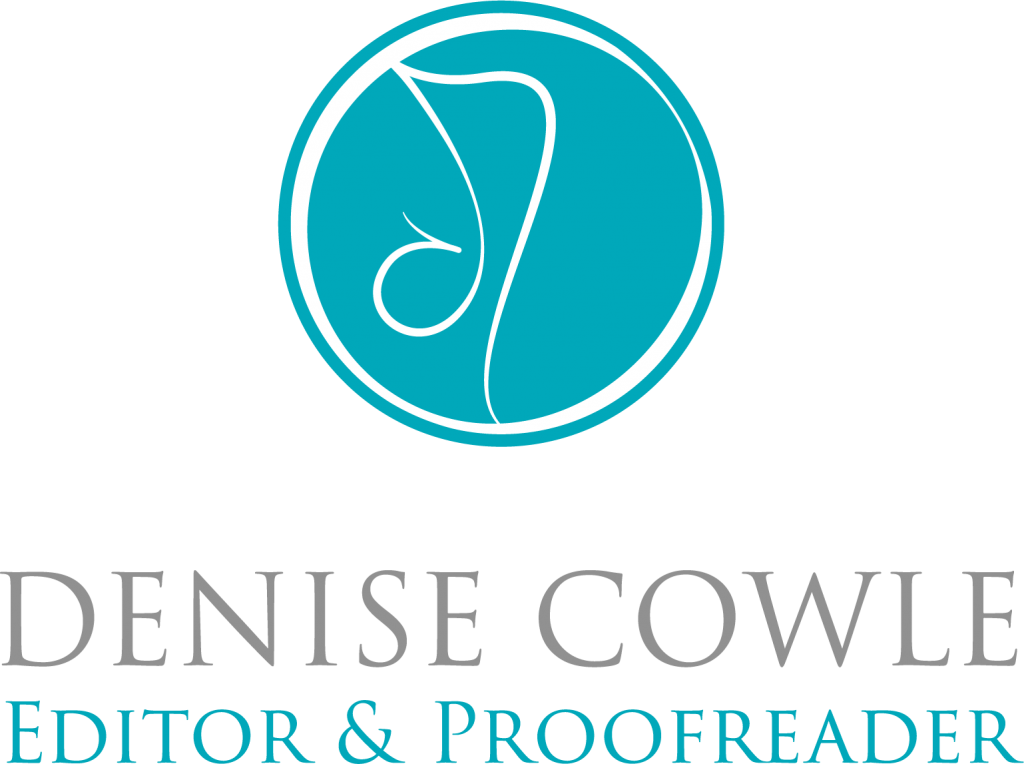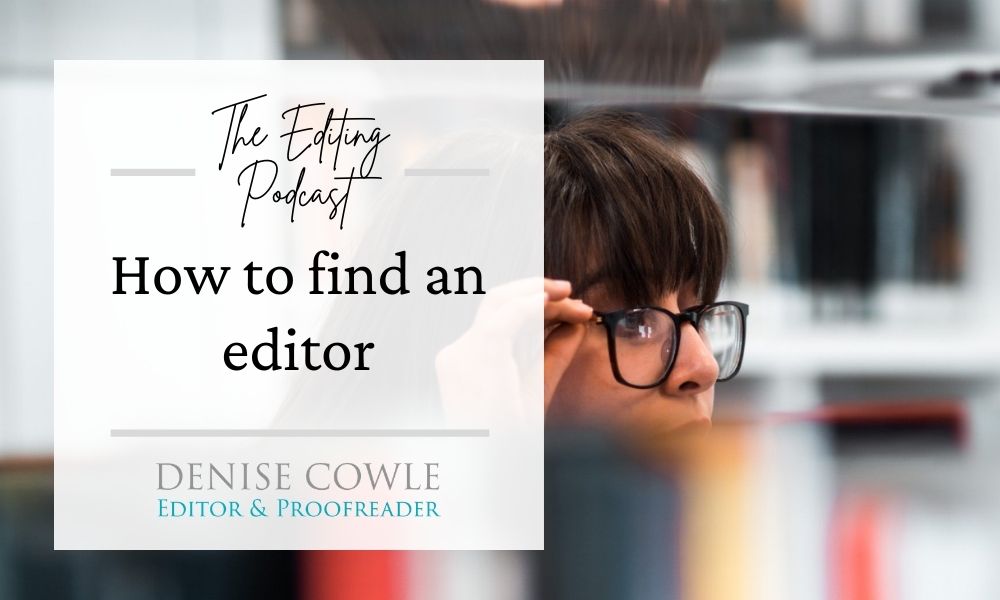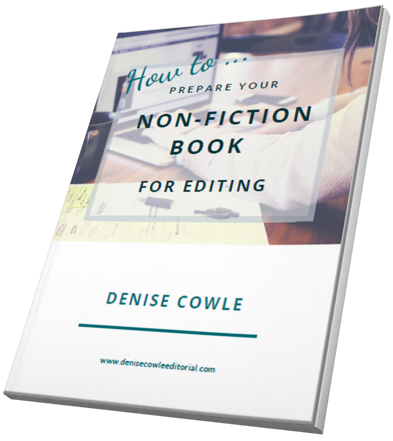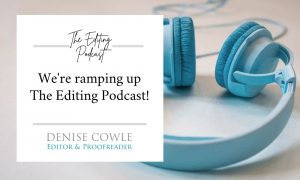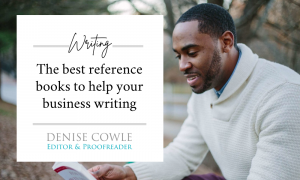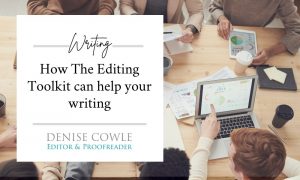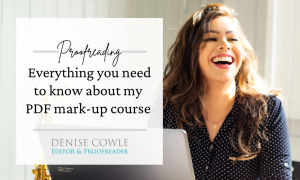Episode 10 of The Editing Podcast is all about finding the right editor for you.
When you’re writing your book and you need an editor to polish your writing, where do you start? There are tens of thousands of editors in the world, so how should you go about finding the right one?
In this episode, Louise and I talk about how to filter out the noise to find your perfect-fit editor.
Louise Harnby: Hello and welcome to Episode 10. So this week we’re talking about how to actually find an editor if you decide you want professional help.
Denise Cowle: So we’re going to assume that you’ve already decided what type of help you want … a critique, or developmental editing, or sentence-level help like copy- and line-editing or pre-publication assistance with proofreading.
LH: If you’re still not sure, have a listen to Episodes 1 and 5. In Episode 1 we talk about the different levels of editing and in Episode 5 we chat about genre and subject specialisms. So, anyway, there are two parts to the process of finding an editor: first is the initial search, and then comes the refinement process.
Use editorial organisations’ directories
DC: Yes, I think it makes absolute sense to break it down like that. So let’s take a look at the options for that initial search. Your national editorial society is a great place to start because most have membership directories, and those are a lot smaller and easier to navigate than Google, or some other search engine, and that means you can concentrate your search.
LH: Yes, and you can often search on key words. So let’s say you’re a crime writer looking for a proofreader, you’ll be able to narrow your search to people who have experience of proofreading specifically crime fiction. Or if you were writing an academic history book, you could find editors who had experience of that.
DC: That’s right. Plus, some professional associations, like the Chartered Institute of Editing and Proofreading (CIEP), for example, won’t allow a member to advertise unless they meet certain criteria … like training or providing references from publishers. And the editor might have to have completed say 1,000 hours of work or passed an editorial test.
LH: And I think that’s really important, actually, because it means writers can feel confident knowing that they’re engaging with editors who are fit for purpose. And it’s not like being a doctor, is it? Anyone can set up and call themselves a professional editor. It’s really difficult for writers to work out who’s genuine. But the other thing is, that society might have a code of practice that every member has to sign up for, so the CIEP does, and that’s worth looking out for too, because it offers protection.
DC: Good point! What I would say is that for some national societies, the national element could be limiting because all the advertisers are from one country. And, in fact, there’s absolutely no reason why you have to source editorial help from someone in your own backyard. Many editorial professionals, including us, work with clients from all over the world.
Searching the internet to find an editor
LH: Absolutely. Just as your audience as a writer is global, so too are the editors you can work with. So the second place to do an initial search is the biggest and most amazing directory on the planet – and that is the internet! Your perfect-fit editorial pro is out there, just waiting for you to touch base.
The problem is, the fact that it’s the biggest and most amazing directory is also what makes it a nightmare place to search because your perfect-fit editorial pro is buried, and that means you need to find a way to dig them out!
DC: That’s so true! And if you’re too broad with your keywords you might miss them, or if you go too narrow then, yes, again, you might miss them.
LH: That reminds me of that thing you can do on Google – sometimes it prompts you with that message ‘are you feeling lucky?’.
DC: I always think it should say ‘punk’ after that, actually! Google’s gone all Clint Eastwood on me! So yes, any serious writer doesn’t want to be messing around with luck when it comes to their precious book. But I think there’s something else that’s worth pointing out here: being high up in Google doesn’t mean the editor is necessarily the best fit for you; it means they’re an effective marketer.
LH: Yes, and just because someone’s website is ranked highly for some niche long-tail keyword search, doesn’t mean that another person who didn’t pepper their website with those particular terms isn’t worth considering, too. And all of that means you need to do a lot of Google legwork to find the best fit and get a really good batch of potential people to work with.
DC: True. So we’re not saying don’t use the internet but I think we need to recognise its limitations – among all the well qualified, competent professionals you’ll also find people advertising themselves as proofreaders and editors with little or no training. Now they may mean well, but they aren’t necessarily up to standard. This can leave you vulnerable to paying for work that’s below standard, shoddy or incomplete.
LH: Yes, that’s the thing about Google, it’s amazing but it’s crowded, so you’ll need to invest some time to make it work for you. Which is why we talked about considering professional organisations before we mentioned Google!
Is there an editor in your network?
So the next place to think about is your network. If you’ve developed a solid network of fellow writers, that could be a brilliant way to get recommendations.
DC: It could, although you also have to bear in mind that the best fit for your writer pal is not necessarily going to be the best fit for you. In some ways, it’s a small resource given the size of the decision.
LH: That’s a really good way of looking at it, actually. So you could be writing in a different genre, or you might need help with a different level of editing.
DC: And as we talked about in some of the earlier episodes, different editors specialise in different types of editing or particular subjects or genres. So, yes, by all means tap your network for advice, but back it up with other searches too.
Using social media to find an editor
LH: Yes, exactly. So the next search tool on our list is social media. Just like the search engines, social media is great because it’s global but it also has its limitations. So one of these is that different editors use social media platforms in different ways. For example, some are active primarily on Twitter, and might have a LinkedIn profile but only use Facebook for personal use. So what I’m saying is, which platform you use for your search will determine who you find and who you miss.
DC: I think another thing worth mentioning is that most social media profiles are pretty restrictive in terms of what can be included, so you might not get the best sense of fit from what information the editor’s included. LinkedIn’s probably the best platform for allowing detail to be included, do you think?
LH: Yes, I do, though I have to say, from a fiction editor’s point of view, and a fiction writer’s point of view, I don’t think it’s where I have most of my conversations with authors. In my experience, Facebook’s a little better, even though the information you can put on your business page as an editor is not as good as with LinkedIn.
Using portfolios in your search for an editor
DC: Agreed. So now let’s take a look at how you might refine your initial searches. Imagine you’ve found 40 developmental editors or copyeditors or proofreaders … whatever you need. All of them look great – they all have experience; can spell properly; are well educated and professional; and have a keen eye for detail and the appropriate training and qualifications.
LH: Yes, you’re going to need a way of narrowing down that list to something manageable. So one way you can do this is with genre and subject experience. An editor’s portfolio can be a godsend here because you can see at a glance whether they’re used to working with material that’s similar to the stuff you’ve written.
DC: Although, at the final pre-publication proofreading stage – which takes place after all the previous rounds of self- and professional editing are complete – genre experience might not matter as much.
LH: That’s true … as long as the copy-editing, line-editing or developmental editing has been done. And I think at that at those stages, genre experience can really help. I’ve noticed in my own work, for example, that something like crime fiction requires quite a different touch to historical romance … things like the style of writing, the way characters talk, the length of sentences, even the way punctuation is used is often very different across genres.
DC: Yes, and that can be the same to a degree with non-fiction. So I’ve edited business books aimed at the lay person that have a very different feel to them to the more highbrow academic stuff, so choosing an editor with experience of your material can really help. Now there’s more to an editor than their portfolio so we’re not saying it should be the only thing you use to make your decision, but it should give you a feel for who’s used to working with writing like yours. And I don’t know about you, Louise, but I think one of the best ways of refining a search is via samples.
Using sample edits to find the right editor
LH: Yes, I couldn’t agree more.
DC: So a sample will allow you to see who ‘gets’ your writing. A lot of editing is subjective and you might find that five editors all spot the same typos and grammar errors but handle the overwriting or recasting rather differently.
LH: That’s right, and that’s where it comes down not so much to right or wrong, but rather about emotional responsiveness. And this is something that fiction editors talk about quite a lot, but I think it applies just as much to non-fiction. I know you’ve talked about it before, especially with regard to evocative or creative non-fiction.
DC: Yes, absolutely. Even if it’s non-fiction you’re still telling somebody’s story, particularly with things like memoirs, or creative non-fiction. You want to really feel in tune with the author’s voice and make sure that when you’re doing your editing you’re not cutting that out of it. So it really is an important fit to get, to find the right editor who really is tuned in to your writing.
Using testimonials to narrow the field
So a third thing to consider at that stage then, of the refinement process, is testimonials and endorsements – in other words, what other writers say about an editor. So take a look at editors’ testimonials. Have other writers been prepared to publicly endorse them? Have mainstream publishers stuck their necks out and praised the work?
DC: Yes, it’s a good way of checking things, but testimonials aren’t a foolproof way of determining excellence; again, just like with portfolios, it’s more that they give you a glimpse of what the editors have done, who they’ve worked with and the impressions they’ve made. It really is just one way among several of evaluating what’s on offer.
LH: Yes, it’s a toolbox, which I think is a good way of looking at it. So let’s summarise. Do your initial searches using national editorial societies, the search engines, social media, and your network.
DC: And then refine your search using tools like genre and subject portfolios, sample edits and endorsements.
Editing Bites: resources for writers
LH: So now it’s time for Editing Bites – our weekly feature where we recommend a tool or resource to help you on your writing journey. So Denise, what have you got this week?
DC: This week I’m recommending the Writers’ and Artists’ Yearbook. Most people think of this as a list of publishers and agents, but it’s so much more than a contacts list – it’s stuffed full of useful articles across all genres and really is an amazing resource for any aspiring writer. The 2019 edition is available now, and the foreword is by Joanne Harris.
LH: So I’m going to recommend the Alliance for Independent Authors. They have a Partner member directory, actually, where editors, and other publishing professionals advertise, so that might be a useful tool for you when you’re searching for an editor. But what I love more than anything about ALLi is their vision for self-publishers and all the free advice and networking opportunities there are to help indie authors keep control of the entire publishing process. And Denise and I have done a couple of roundtable discussions as part of their annual online conference, so we’ll make sure the videos for those are linked to in the show notes.
DC: That’s a great resource to end with. So that’s it for this week. Thank you so much for listening to The Editing Podcast. You can rate, review and subscribe via your podcatcher.
Ask us a question
The easiest way to ping us a question is via Facebook Messenger: Visit the podcast’s Facebook page and click on the SEND MESSAGE button.
